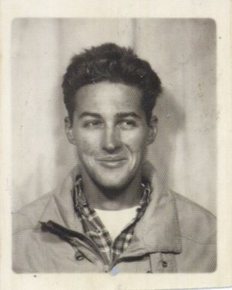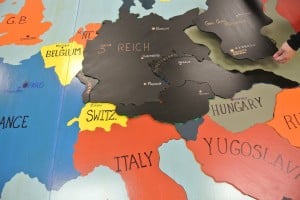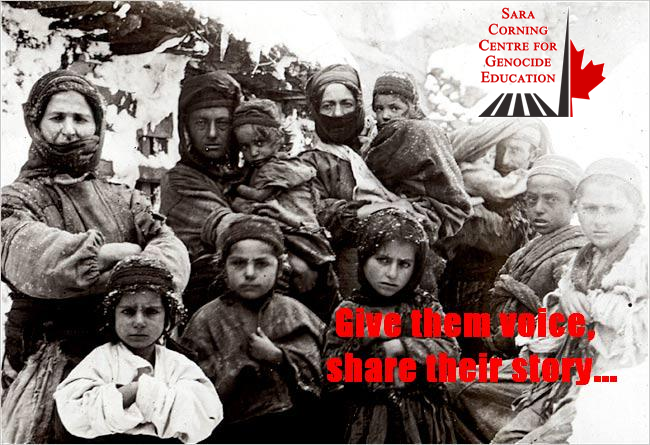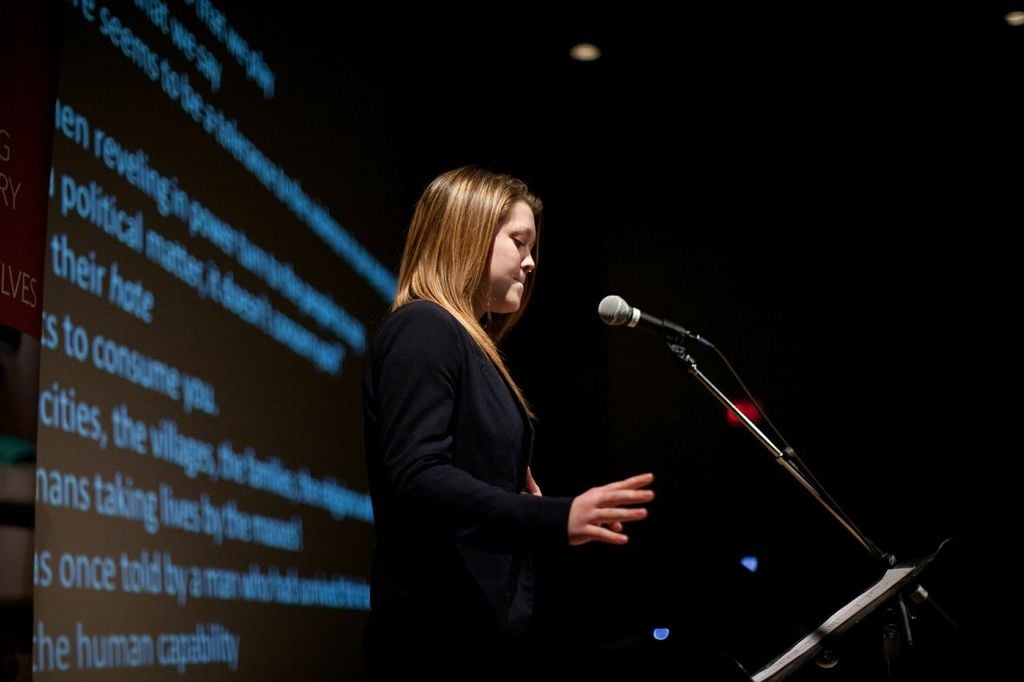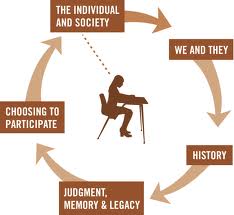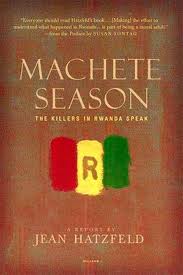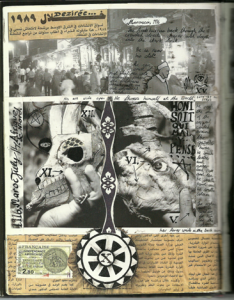I started journaling when I was a boy canoeing the waters surrounding my family cottage in Muskoka. My journals were filled with maps of all the places I “discov
ered” during my summers up north. As the years went by and I entered high school, the journal’s pages of maps became dotted with anecdotes from my life beyond that lake. It was around this time that I found a copy of The Journey is the Destination: The Journals of Dan Eldon at a local bookstore.
Journaling in a Facing History Classroom: Finding Wisdom in Student Voices
Posted by Nathan Tidridge on March 18, 2014
Topics: Identity, History, Memorial, We and They, Strategies, Genocide and Crimes Against Humanities Course, Lesson Ideas, English Classroom, CHG, Personal history, reflection
After recently watching the movie Indiana Jones and the Last Crusade with my sons, a thought hit me. In the movie, Indiana accidently comes across the gigantic map room where Nazis are secretly planning their conquests. Leaders and rulers – and everyday citizens – throughout history (like Winston Churchill, for example) have had map rooms. My students needed one too.
Topics: Art, Innovative Classrooms, Museum Studies, Genocide and Crimes Against Humanities Course, CHG
As a history teacher, I often struggle to help my students see the relevance of the past and understand the power it can wield in helping them to navigate the present. With this in mind, I began to plan my unit on the Armenian Genocide. This genocide occurred almost 100 years ago under the cloak of WWI in 1915, when the Ottoman government embarked upon the destruction of its Armenian population. I decided that to give voice to this genocide beyond readings and documentaries, I would invite a guest speaker from the Armenian community.
Topics: Choosing to Participate, Armenian Genocide, History, Memorial, genocide, Genocide and Crimes Against Humanities Course, Lesson Ideas, CHG, Personal history
New to our Toronto Library: "The Ghosts of the Third Reich"
Posted by J H Slater on January 21, 2014
I used to think that Holocaust perpetrators were "other people", some monsters out there. And suddenly I had to realize that my own grandfather was one of them.
Ursula Boeger, granddaughter of Friedrich Wilhelm Boger, Officer at Auschwitz Concentration Camp
"The Ghosts of the Third Reich" documents the poignant and anguished stories of descendants of the Nazis as they confront their family's past and communicate their most profound feelings of guilt by inheritance. These individuals, whose family members were supporters, officers, and elite of the Nazi regime, share a common desire to distance themselves from Nazi ideology and the actions of their ancestors; and to liberate themselves from the guilt, shame, and pain that continue to levy a heavy price seventy years later. The confrontation with the inheritance of the Nazi legacy is powerfully evoked further in the inclusion of moments from The Austrian Encounter, a focal point for dialogue between descendants of Nazi perpetrators and survivors of the Holocaust.
Directed by: Claudia Ehrlich Sobral and Tommaso Valente
Produced by: SD Cinematografica
Duration: 45' Format: HD DVD
http://www.sdcinematografica.com/index.php?code=prodotti_pagina_11_540
See the trailer:
http://www.youtube.com/watch?v=iAYgkHx8Tn8
Educators with library access may contact Jeannette Slater at jeannette_slater@facing.org if they would like to borrow this resource.
Topics: Facing History Resources, Identity, History, Holocaust and Human Behaviour, CHG
Topics: Choosing to Participate, Facing History Resources, History, Best of..., Lesson Ideas, Holocaust and Human Behaviour, CHG, reflection
Rob Flosman is assistant head of history at Waterdown District High School in Hamilton. This year he is writing for our sister blog InterFacing. I don't want to give away all the details about his incredible project, the goal of which is to make history personal, relevant, and alive for his students and community, because he says it so well himself! With the support of a 2013 Margot Stern Strom Innovation Grant from Facing History and Ourselves, Rob is in the process of creating a truly incredible legacy for his school and community. Click here to read his first blog on the early stages of his project.
Topics: Choosing to Participate, Facing History Resources, Identity, History, Technology, genocide, legacy, Genocide and Crimes Against Humanities Course, CHG, Personal history
As the end of each school year draws near, I feel a great deal of frustration. As students are overwhelmed with culminating assignments or the decisions that they made about completing school work for the previous 9 months, the demands on the teacher expand exponentially as well. As I work with the Growing Success system and school programs such as student success and credit rescue, I struggle to ensure that the decisions that I make maintain the integrity of the course, give students the opportunities they deserve or need, and maintain the intent of the ideals of character education. I find this overwhelming.
Topics: Choosing to Participate, History, Genocide and Crimes Against Humanities Course, Holocaust and Human Behaviour, CHG
As you may have read in other blogs, the “Stand Up, Speak Out” event was an incredible evening of sharing and community. For me it served to exemplify, and personify, the Scope and Sequence of Facing History and Ourselves. On that evening, half a dozen of my students took the stage along with students from three other southern Ontario schools to perform their spoken word pieces. The performances were broken down into the five steps of the Facing History Scope and Sequence:
Topics: Choosing to Participate, Facing History Resources, Identity, History, Urban Education, project, We and They, Strategies, Culturally Responsive and Relevant Pedagogy, genocide, legacy, Genocide and Crimes Against Humanities Course, Holocaust and Human Behaviour, CHG, reflection
After a year of learning about Genocide and Crimes Against Humanity, students gravitate towards complex and profound questions that are increasingly difficult to answer. In a setting that involves teaching at-risk youth, this type of engagement can be frustratingly elusive. The lesson (content wise) that I will share with you today is one that should not stand alone. This took place in class after having done 3 case studies, including Rwanda, and a unit on concepts of Justice and Memorial. I found that this lesson was very successful at engaging students of all stripes through particular stories of perpetrators to try to gain a better understanding of universal questions of guilt, responsibility, reconciliation, and justice.
Topics: Facing History Resources, History, Urban Education, Strategies, genocide, Genocide and Crimes Against Humanities Course, Lesson Ideas, big paper, CHG

